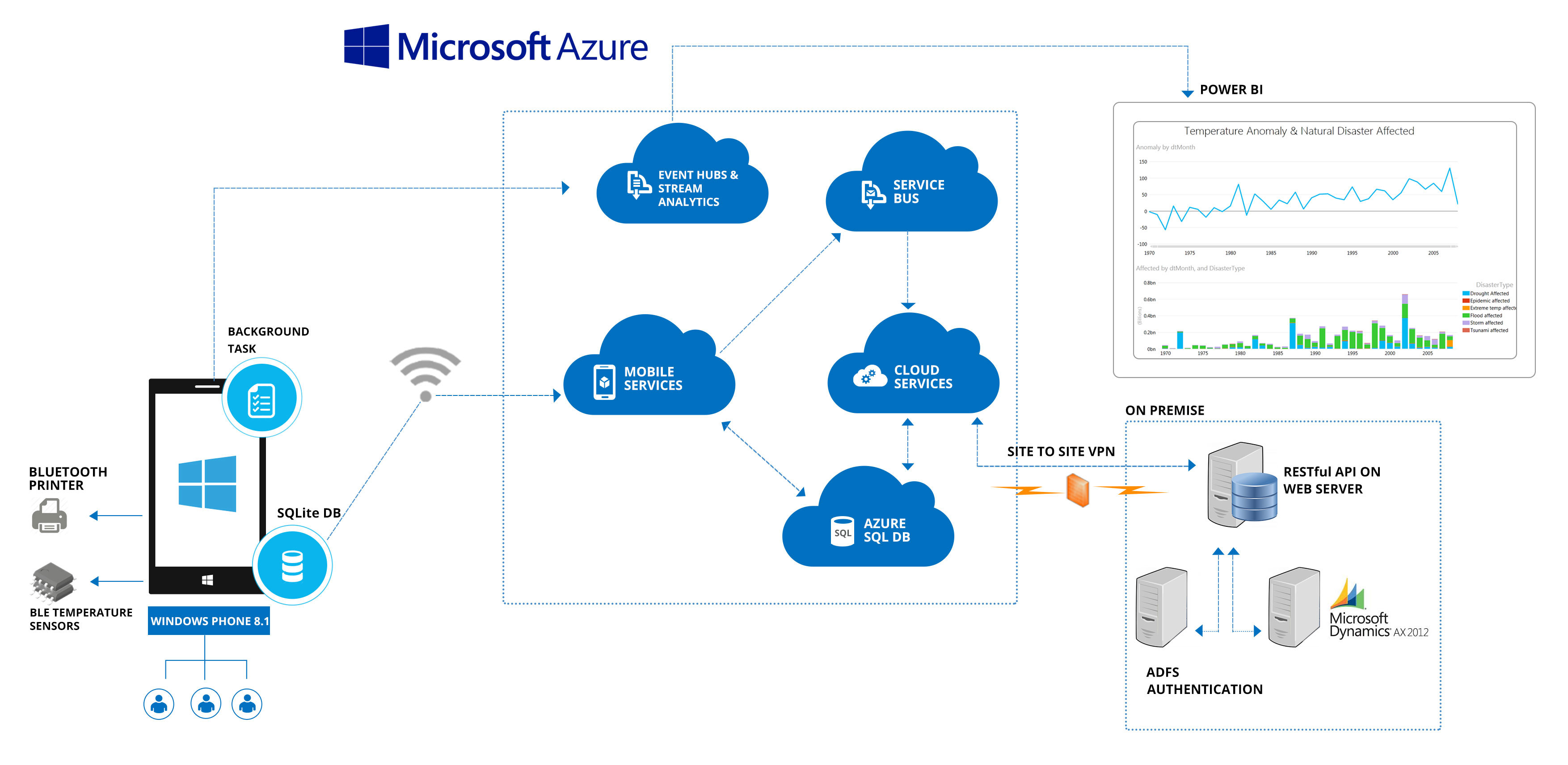mBaaS driven Enterprise Mobility with Azure Mobile Apps Service
by
Sujit Karpe
Mobile Backend as a Service (mBaaS) provides a way to connect the mobile apps with the cloud storage and data processing system. It enables plethora of backend capabilities to support highly-functional mobile apps. Microsoft’s Azure Mobile App Service - Azure mBaaS - is one of the leading mBaaS system that power the Enterprise Mobility Solutions. It consolidates enterprise Active directory, single sign-on, integration with databases, Push notifications, Social media integration as well as Offline-Sync features, all in ready to use stage. It adds necessary security layers to the mobile system. Azure mBaaS protects intellectual property and avoids exposure of business logic to mobile clients eliminating the hacking probabilities.
 Major Functionalities of Azure Mobile Apps Service
Major Functionalities of Azure Mobile Apps Service
Here are the major advantages that Azure mBaaS as a system offers:
- Faster Time-to-Market: Minimizes the operations overhead and reduces difficulties in deploying the mobile applications on cloud
- Efficiency gains: Reduces the backend system development time & cost, and the maintenance cost as well.
- Handles growth & maintenance of Application: It brings-in single stack containing important and common 3rd party API resources eliminating the need to fetch them individually.
- Secure & Scalable: It provides infrastructure package that deals with security, performance, scalability, and other operational headaches.
- Optimized for Mobile devices and Tablets: Data and network optimization for mobile applications, and minimized fragmentation troubles across multiple devices and platforms.
Azure mBaaS driven Enterprise Mobility Solution for Real-time Supply Chain Visibility
A Leading UK’s Food Services Company deliver high-quality food items to customers of varied business like restaurants, cafes etc. To make the business process more efficient and intellgent, client wanted to automate the delivery process. The drivers would deliver food through mobile devices, which are connected to the IoT devices like Bluetooth printers and Bluetooth temperature sensors mounted in trucks. They wanted a mobile app that can communicate with these IoT devices and notify the drivers about the chiller & freezer temperatures of food items. The client’s main focus was on performance optimization since drivers would be delivering food items at multiple places at the same time and that the data sync should occur simultaneously for multiple devices.
A strong, powerful mobile backend system can solve these business challenges and serves as a critical component in the Enterprise Mobility solution. Azure Mobile App Service was leveraged as the backend system to enable offline behavior, security, cloud storage notifications and many other backend functionalities. Azure mBaaS helped in optimizing performance of mobile apps to help drivers in delivering food items at multiple places and at the same time. In addition, it also helped in synchronizing data simultaneously for multiple devices. Xamarin Mobile App framework was leveraged to develop the Windows and Android native mobile app. With the mBaaS driven Enterprise Mobility Solution, the food Services company managed to serve more than 30,000 customers and provided high-quality user experience.
 Azure mBaaS driven Enterprise Mobility Solution
Azure mBaaS driven Enterprise Mobility Solution
With the growing need for Enterprise Mobility, mBaaS has become imperative to connect the mobile applications to cloud, existing legacy systems, & IT estate and perform on-demand functionalities. With the recent acquisition of Xamarin by Microsoft, Enterprises can now leverage Xamarin and Azure together to deploy game-changing mobile applications. Enterprises seeking for an efficient end-to-end mobile backend system can aim for Azure Mobile Apps Service as mBaaS to adopt the striking functionalities and deliver cross-platform mobile applications.